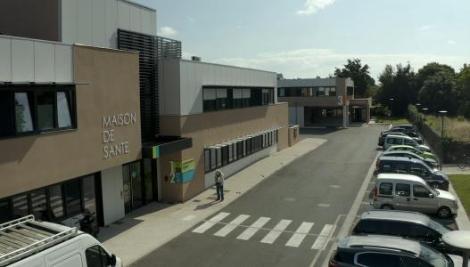Combating medical deserts with the Adour-Madiran health centre
March 2023
Agence nationale de la cohésion des territoires (ANCT)
In the heart of the South-West, the Adour Madiran community of municipalities covers a catchment area of 25,000 inhabitants, spread over 72 communes. For several years now, the region has been suffering from a lack of medical services. The community has therefore made it a priority to combat this phenomenon. One of the solutions has been to attract new practitioners to Vic en Bigorre.

The health centre is an initiative of the Adour-Madiran community of communes. It is organised around 4 doctors, 2 midwives and 1 radiologist.
The background
For more than ten years, the Adour-Madiran Community of Communes (CCAM) - located halfway between the ocean and the mountains - has been suffering from medical desertification, with several doctors retiring in quick succession. As a result, since 2017, the local authority has been rolling out a local health policy in permanent partnership with elected representatives and health professionals.
The action
To this end, the local authority is developing initiatives to attract new doctors to the area, including the opening of a multidisciplinary health centre in Vic-en-Bigorre in 2020.
The communauté de communes offers the best possible conditions for healthcare professionals who wish to devote their time to practising medicine as part of a regional and multi-professional dynamic. This allows doctors to choose their status between self-employed or salaried. The CCAM provides a secretarial service to optimise medical time. This service is a strong point for healthcare staff. More than 150 professionals are already practising in the area.
« This initiative is far from simple, because we don’t speak the same language. But doctors and elected representatives are responsive on both sides. We’re keeping to the same guidelines, to help the community of communes and the patients. Jérôme Ganiot, DGA Territorial Development CC Adour Madiran
Objectives
-
Combat medical desertification in rural areas.
-
To make the region more attractive to new professionals by offering the possibility of salaried employment.
-
To maintain a flexible healthcare offer in the event of a shortage of private practitioners.
Specific features
-
Free healthcare professionals from administrative tasks by giving them access to a status that provides better social protection.
-
Giving healthcare professionals the choice between self-employed or salaried practice.
-
Improving access to care by organising multi-professional care around the patient and developing preventive measures.